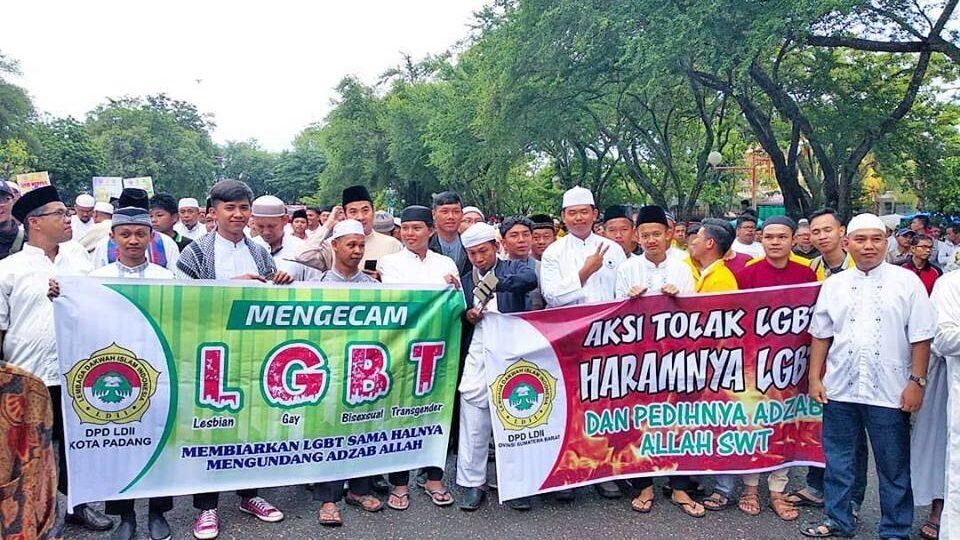Indonesia will be holding its next nationwide general elections in 2024. In the run-up to those elections, a group of organizations representing independent journalists and LGBT rights advocates is warning that the media’s discriminatory coverage of LGBT issues has the potential to increase the risk of persecution and violence against members of the minority.
The Alliance of Indonesian Independent Journalists (AJI), the Union of Journalists for Diversity (SEJUK) and LGBT rights advocacy group Arus Pelangi issued a joint press release today warning of the danger of the media’s discriminatory coverage, which they quantified through a study of 113 stories containing the keyword LGBT published by Indonesian digital news outlets between January and February.
Amplifying anti-LGBT politicians
According to the release, most of the stories from local and national news outlets about LGBT issues focused on anti-LGBT statements made by politicians and other government officials. One example they noted was widely covered comments made by Bobby Nasution, the mayor of Medan and son-in-law of President Joko Widodo.
On Jan 1, Nasution claimed to see a gay couple in front of Medan’s City Hall and said it was unacceptable. “There is no LGBT in the city of Medan. We are anti-LGBT,” he told the media. “There isn’t a single ethnic group in Medan that supports same-sex relationships. So let us adhere to our own cultural values, be it in terms of tradition and everyday lives, and also in relationships.”
Nasution’s words were followed by statements from public officials in Makassar, Bandung, Garut, North Kalimantan and Sampang, all of whom have pushed for the passage of anti-LGBT laws in their regions.
In Makassar, the anti-LGBT regional regulation has become a priority for discussion in the regional legislative agenda. The draft law could criminalize LGBT-related events, groups and rights advocacy.
“The media amplifies and promotes discriminatory policies through statements by politicians and officials,” AJI Indonesia secretary general Ika Ningtyas was quoted as saying.
Discriminatory diction
The group’s study of LGBT coverage took into account factors such as the sources interviewed, viewpoints offered and types of language used.
Out of the 113 stories they studied, 35 included discriminatory statements from civil society organizations (ormas), 31 from members of the People’s Representative Councils (DPRD), 25 from mayors, regents and deputy regents, and 16 from the heads of departments.
The number of stories that included statements from LGBT groups was just five.
Their study also quantified the discriminatory language commonly used in such coverage, including 29 instances of LGBT being referred to as “deviant behavior”, 28 instances of it being “prohibited by religion” and 13 instances of it “violating moral or cultural norms”.
“Discriminatory diction adds to the stigmatization and perpetuates discrimination against the LGBT minority,” said SEJUK advocacy manager Tantowi Anwari.
Threat of identity politics
Worryingly, the group concludes from their analysis that there is a growing desire to politicize LGBT identity in the run-up to the 2024 election and that political parties are encouraging politicians to drum up support by voicing anti-LGBT sentiments.
“The mass media must be extra careful about these patterns of being used for identity politics ahead of 2024,” said Ika.
AJI Indonesia, SEJUK, and Arus Pelangi end the release with a call for the mass media to publish news stories that are inclusive of the LGBT community, respect diversity and are written from a human rights perspective in accordance with the principles of the Universal Declaration of Human Rights.
Barring any changes, Indonesians are set to go to the polls on Feb. 14, 2024.




